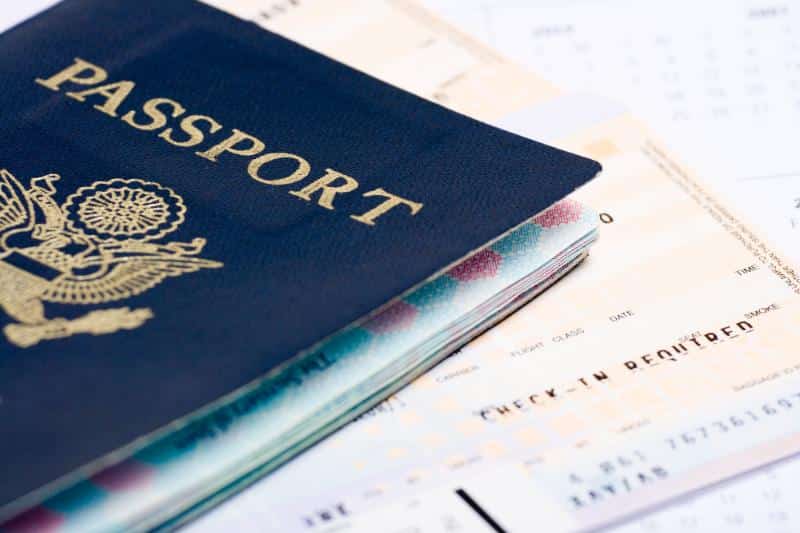Family vacations are special. They’re an opportunity to break away from the daily grind, to create cherished memories, and to bond without distractions. However, as joyful as the thought of a family vacation is, planning one can sometimes feel like a daunting task. There are schedules to coordinate, budgets to manage, and the hopes of every family member to consider. Yet, when done right, the result is a seamless blend of fun, relaxation, and shared experiences.

If you’re wondering how to ensure your family vacation turns out perfectly, we’ve got you covered. Below, we’ll discuss the dos and don’ts of planning the perfect family vacation.
Dos
1. Research and Preparation
Proper research and preparation are the bedrock of a successful family vacation. It’s not merely about picking a destination; it’s about ensuring that the chosen place caters to the interests and needs of everyone involved. Online platforms are an excellent place to start, with countless travel blogs, reviews, and forums that offer insights into potential holiday spots.
For families looking to add a touch of comfort and style to their trip, taking the time to explore modern and luxury options can really pay off. These days, many high-end properties are going the extra mile to welcome guests of all ages at their family friendly resorts, offering a mix of sleek design and practical features that make traveling with kids feel effortless. From spacious living areas and full kitchens to private patios with scenic views, these resorts strike the perfect balance between relaxation and convenience—so everyone in the family can enjoy the getaway in their own way.
For instance, families vacationing in Gatlinburg, TN, a destination popular for its picturesque landscapes and friendly ambiance, should consider their accommodation choices early. Gatlinburg attracts a considerable number of tourists, especially during peak seasons. Hence, it’s best to look up Stony Brook cabin and book your lodgings on time to save both time and last-minute hassles. The early bird not only gets the worm but also the best views and deals.

2. Involving Everyone in Planning
One person shouldn’t bear the entire burden of planning the vacation. Involving everyone, including the kids, can make the process both manageable and fun. Let children voice out what they’d like to do and find out what activities the older members are looking forward to. This practice not only ensures everyone’s preferences are taken into account but also builds up excitement and anticipation. After all, vacations are about every member, and what better way to start the bonding process than during the planning stages?
3. Setting a Realistic Budget
Money matters. While we all wish for unlimited funds for our dream vacation, it’s crucial to set and stick to a realistic budget. Start by listing down the expected expenses: travel, accommodation, food, activities, and a buffer for miscellaneous expenses. Remember, the aim is to have a good time without the dread of an empty wallet at the end. Setting aside a budget also helps in prioritizing activities and making informed decisions, ensuring you get the best value for your money.
4. Packing Smart

Packing is an art and a science, more so when it’s for a family. Begin by making a checklist. This way, you may ensure that essentials like medications, chargers, or that special teddy bear aren’t left behind. Since kids can be unpredictable, it’s wise to pack snacks, especially for long journeys. Healthy bites can keep hunger tantrums at bay. Also, considering games or activities for transit can keep children engaged and make the journey pleasant for everyone. When it comes to clothes, think of versatile pieces that can be mixed and matched. And remember, it’s always smart to check the weather forecast of the destination before tossing clothes into the suitcase.
Don’ts
5. Not Keeping Important Documents Handy
The importance of keeping crucial documents like passports, IDs, and travel bookings in an accessible yet safe spot cannot be overstressed. Designate a pouch or folder for these documents and ensure it’s always in a consistent place, be it in your day bag or hotel safe. Moreover, it’s wise to keep digital copies of all important papers as a backup. This simple step can prevent potential disruptions and stress.
Keeping documents up to date is just as important as keeping them safe and accessible. Families living around the City of Brotherly Love always apply for a Passport Renewal in Philadelphia, PA way ahead of their planned travel dates to avoid any last-minute complications. By staying on top of your document renewal process, you can ensure that all your travel preparations are smooth and stress-free.

6. Overpacking
It’s tempting to pack for every possible scenario, especially when traveling with children. However, overpacking can lead to bulky luggage, excess baggage fees, and the hassle of hauling it around. Instead, focus on essentials and consider what can be easily purchased at the destination. Remember, every space in the suitcase is valuable. Think about the activities you’ll be doing, and pack accordingly. For example, if there’s no swimming on the agenda, those extra swimsuits can stay at home.
7. Overscheduling
While it’s natural to want to make the most of your vacation, cramming too many activities into a tight schedule can be exhausting. It can transform a relaxing getaway into a frantic rush from one spot to another. It’s essential to strike a balance. Prioritize activities but also ensure there are intervals of downtime. This downtime can be used for spontaneous explorations or simply unwinding. A vacation is as much about relaxation as it is about adventure.
8. Ignoring Local Norms and Culture
When traveling to a new place, it’s essential to be respectful and aware of local customs and traditions. Every region has its unique set of norms, and what’s acceptable in one place might be frowned upon in another. Before the trip, take some time to educate the family about the local etiquette. Simple gestures, whether greeting locals in their language or being aware of dress codes, can make a significant difference in the way you’re perceived and can lead to a more enriching travel experience.
9. Forgoing Travel Insurance
It’s easy to overlook travel insurance or dismiss it as an unnecessary expense. However, unexpected situations can arise, from lost baggage to sudden illness. Travel insurance offers a safety net in such scenarios. It’s always better to have it and not need it than the other way around. Before you leave, research and pick a policy that suits your family’s needs. It adds an extra layer of peace of mind, letting you enjoy the vacation without lingering worries.
10. Skipping Reviews and Recommendations
While spontaneity has its charm, it’s beneficial to look up reviews and recommendations for places you plan to visit, be it attractions or restaurants. In the age of the internet, a quick search can provide insights into what to expect, helping you make informed decisions. It’s particularly handy in avoiding tourist traps or overhyped places, ensuring your time and money are well-spent.
Conclusion
Planning the perfect family vacation is a blend of excitement and responsibility. It’s about making memories, bonding, and experiencing new things together. By being mindful of these dos and don’ts, families can ensure a smoother, more enjoyable holiday. In the end, it’s the shared laughs, stories, and moments that matter most. So, with a little preparation and awareness, set out on that adventure and make it a trip to remember.
